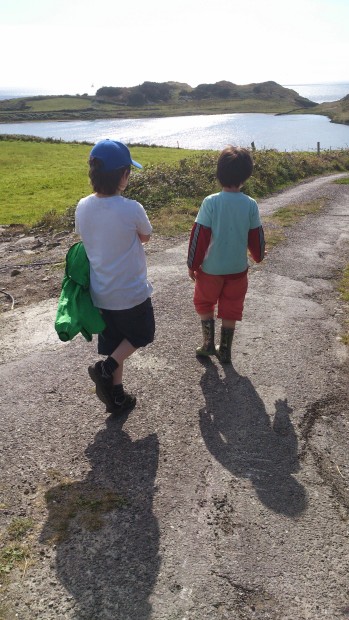As part of their research into the development of a state’s approach to education about religion, beliefs and ethics, the national Council for Curriculum and Assessment in Ireland examined the approaches to religious education taken by the various patrons of Ireland’s primary or elementary schools, see here. While the merits of the Community National Schools, the John Scottus Educational Trust and Educate Together programs are acknowledged the programs of denominational patrons do not fare so well. Continue reading “Diversity in Denominational Programs”
 The whole area of Religion, Beliefs and Ethics can elicit the strongest of feelings in people and can be an emotional minefield of potential conflict. From local arguments over the relationship between faith communities, belief systems and school ethos and what should or shouldn’t be taught in schools to international and inter-religious discord and violence, peaceful, fruitful engagement continues to be a struggle for many of us. It is, therefore, vital that our children are given the tools to engage respectfully and openly with each other in a way that many of us in this society seem unable, or perhaps, unwilling to do. Religious education and the exploration of belief and ethics should, one would hope, help develop self-awareness, explore the role of belief in our lives, discernment and a deep understanding of diversity as well as an appreciation of the need to find common ground while acknowledging our differences when engaging with others.
The whole area of Religion, Beliefs and Ethics can elicit the strongest of feelings in people and can be an emotional minefield of potential conflict. From local arguments over the relationship between faith communities, belief systems and school ethos and what should or shouldn’t be taught in schools to international and inter-religious discord and violence, peaceful, fruitful engagement continues to be a struggle for many of us. It is, therefore, vital that our children are given the tools to engage respectfully and openly with each other in a way that many of us in this society seem unable, or perhaps, unwilling to do. Religious education and the exploration of belief and ethics should, one would hope, help develop self-awareness, explore the role of belief in our lives, discernment and a deep understanding of diversity as well as an appreciation of the need to find common ground while acknowledging our differences when engaging with others.
In developing an education system, the state can choose to make all decisions without considering the needs and concerns of the various groups and stakeholders within society, from children to parents and the diverse communities and individuals that form the body politic. It can insist that its decisions are final, that the population must accept the decisions of those in authority without question. Alternatively, the state may decide to look to the needs of its people, to consult and to allow their opinions, hopes, experience, needs and concerns to inform planning and decisions without negating its authority and the need to lay the foundations of a cohesive society. In representing needs of all communities and traditions in society as best it can, this form of education system has the potential to benefit all in society, from the vulnerable and marginalised to those with the strength and capacity to strive without much support.
The voices of communities and parents are central, as is the need to provide both them and their children with an education system that supports their values and reflects the culture and traditions they wish to share with and pass on to their children. The consultation process in Education About Religions, Beliefs and Ethics begun by Ireland’s National Council for Curriculum and Assessment in late 2015 is an important part of education planning. Hopefully, all parents will feel more at ease with the Irish education system, knowing that their beliefs, world-views and hopes for their children have been taken into account.
Given enough supports and access to appropriate resources, it should also be of great benefit to school communities. If, however, there is no real collaboration with denominational patrons that allows for appropriate integration with schools’ programs and opt-out provisions that allow for diversity in the classroom, it could become a burden rather than a blessing, one which seems to diminish or dilute the many positive elements of their unique identities. A seemingly dismissive attitude to denominational approaches could also be a cause of apprehension and disquiet within communities, particularly where sensitive, effective forms of inclusion and dialogue that do not dilute the teachings and unique identities of particular denominations have been promoted and much work has been done to both encourage and enable the use of holistic, child-centred and critically reflective teaching methods.
The proposed features of the NCCA’s framework or curriculum in Education About Religions, Beliefs and Ethics make a vital contribution to the full and harmonious development of our children and can support their learning in other areas of the curriculum. If implemented, they should greatly enhance children’s experience of Religious Education, helping them to gain a deeper, more critical understanding of religiosity and belief and a more responsible, balanced approach to ethics that will help them take ownership of the faith or tradition that has been handed down to them. It should also enrich their diverse faith journeys, allowing them to grow in their different traditions and systems of belief or non-belief while encountering and learning from other worldviews, enabling them to discern goodness and truth within their own traditions and in the world around them.
